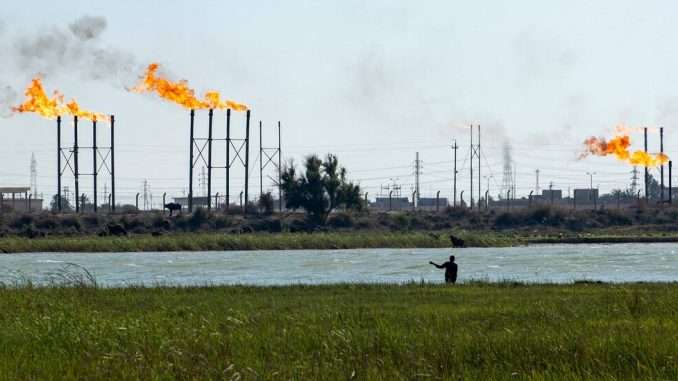
Intense fighting is underway in a region that holds much of the world’s petroleum resources. Yet, after a few days of anxiety following the bloody Oct. 7 raids by Hamas militants in Israel, energy markets have been slumping. Brent crude, the international oil benchmark, is selling for about $80 a barrel, cheaper than when the fighting started.
Why aren’t prices higher? A main reason, analysts say, is that the fighting, no matter how vicious, has produced little disruption to petroleum supplies, leading traders to conclude that there is no immediate threat.
“While traders realize there is an increased risk, that hasn’t led to a lot of precautionary buying,” said Richard Bronze, head of geopolitics at Energy Aspects, a London-based market research firm.
With respect to the Middle East, the markets are “effectively dismissing that anything could go wrong,” said Raad Alkadiri, managing director for energy and climate at Eurasia Group, a political risk firm.
Mr. Alkadiri said that traders are unlikely to bid up prices unless they see “actual barrels removed” from the market.
Waning Demand in Focus
The market appears to have blocked the war out, and has returned to a mood of pessimism about future demand for petroleum, dominated by economic concerns about China, the largest oil importer, and other large consumers. Saudi Arabia and other producers have been trying to support prices by reducing their oil output.
Forecasters are warning that 2024 could be a difficult year in the oil markets. The U.S. Energy Information Administration predicted this week that gasoline consumption in the United States would decline next year because of more efficient vehicle engines, growing numbers of electric cars, and reduced commuting as more people work hybrid schedules.
The bearish sentiment drove down prices sharply before the Israel-Hamas conflict and it appears to be weighing on the market again, despite the risks of a broader war.
Robust oil production in the United States has also reassured markets, with supplies from the world’s largest producer recently setting a monthly record, at just over 13 million barrels a day. “Strong oil market fundamentals are prevailing over any fears at the moment,” said Jim Burkhard, vice president and head of research for oil markets, energy and mobility at S&P Global Commodity Insights.
Haves and Have-Nots
As the fighting continues, traders have figured out that when it comes to oil there are haves and have-nots in the Middle East. Gaza produces no oil and Israel little. For there to be a material disruption in supply, the war’s effects would need to spread to the gigantic oil fields of Saudi Arabia, Iraq or Iran.
Early in the conflict, Iran’s foreign minister called for an oil embargo against Israel, stirring memories of the oil embargo of 50 years ago. But times have changed: Given concerns about the role that fossil fuels play in climate change and their dependence on oil for revenues, any such move would risk backfiring on countries that imposed such a ban. Iran would risk alienating China, the Islamic Republic’s key customer.
“The risk to supply is very unlikely to come from an independent decision to curtail oil sales by Iran or OPEC,” Eurasia Group said in a recent note. “Any such move would inflict as much — if not more — damage on producers as on consumers.”
The Remaining Risks
A disruption is not inconceivable. Four years ago, a missile attack on a key Saudi facility — for which American officials blamed Iran — temporarily knocked out about half of the kingdom’s oil production.
In an extreme case, Iran, the key backer of Hamas, could try to block the Strait of Hormuz, through which huge volumes of oil flow to the rest of the world. “I still think that there is considerable risk that this spreads,” said Helima Croft, head of commodities at RBC Capital Markets, an investment bank.
Ms. Croft said seeming complacency about the war’s impact could stem in part from traders’ having lost money when prices surged above $120 a barrel after Russia’s invasion of Ukraine, but then quickly fell.
“The market just has no attention span for these kinds of issues anymore,” she said.
Ms. Croft, a former analyst at the Central Intelligence Agency, said the apparent success of the early days of the 2003 invasion of Iraq by U.S. forces eventually led to a conflict that dragged on for years. “We could still be caught by a nasty surprise in the Middle East,” she said.
The Biden administration is trying to prevent a widening of the war. Regional oil powers, including Iran, would also prefer to keep tanker traffic moving through the Persian Gulf. Any halts would crimp their own export earnings, while price spikes would risk hurting and alienating their most valued customers.
“It’s likely the conflict remains contained and doesn’t spill over into the big oil producers in the region or the key shipping lanes,” said Mr. Bronze of Energy Aspects. “The risks are more from miscalculation and misjudgment,” he added.


Be the first to comment